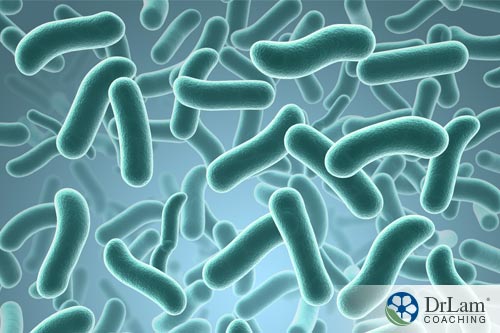 “As sweet as honey” is a quote probably as old as humankind. Honey is one of the world’s oldest sweeteners, with the oldest honey ever found coming out of an Egyptian pyramid estimated to be approximately 3,000 years old – and still perfectly edible. Yet statistics indicate that the average American consumes an astonishing 16 pounds of refined sugar plus another 62 pounds of high fructose corn syrup each year. The result of this high sugar consumption has been increased weight and damaged health for the general population. Raw honey, which is 100% natural, is a much healthier alternative.
“As sweet as honey” is a quote probably as old as humankind. Honey is one of the world’s oldest sweeteners, with the oldest honey ever found coming out of an Egyptian pyramid estimated to be approximately 3,000 years old – and still perfectly edible. Yet statistics indicate that the average American consumes an astonishing 16 pounds of refined sugar plus another 62 pounds of high fructose corn syrup each year. The result of this high sugar consumption has been increased weight and damaged health for the general population. Raw honey, which is 100% natural, is a much healthier alternative.
The long shelf life of honey may be due to the fact that it has a high sugar content, low pH, and its antibacterial properties. Although honey may crystallize in time, it is still perfectly edible – just heat it for a few minutes so that the crystals can dissolve and it can easily be scooped out of the jar.
Honey has different hues, flavors, and smells. It all depends on the plants the bees got their nectar from. Sometimes the taste of honey is a combination of flavors because bees can travel for up to five miles from their hives in search of a food source. Other factors to take into consideration include the temperature and rainfall of an area. Honey that is darker in color usually has a much stronger flavor than its lighter counterparts, with research showing that darker honey may have more antioxidants.
When it comes to cooking, different types of honey come into their own. Orange blossom honey works great in marinades or salad dressing, buckwheat honey works well in a barbecue sauce, and wildflower honey is a wonderful addition in baking. You should, however, lower your oven temperature by a few degrees when baking with honey so that your baked goods do not get too brown. Also, when baking, you can substitute a three-quarter cup of honey for each cup of sugar needed while liquids need to be reduced by a quarter, and a quarter teaspoon of baking soda added.
 Honey is made up of fructose (50 %), glucose (30%), water, pollen, and minerals that include potassium and magnesium. Although the latter components may be responsible for some of honey’s health benefits, honey is lower on the glycemic index (GI) than sugar so takes longer to digest, it contains more calories, and it is much sweeter so less is used, generally speaking.
Honey is made up of fructose (50 %), glucose (30%), water, pollen, and minerals that include potassium and magnesium. Although the latter components may be responsible for some of honey’s health benefits, honey is lower on the glycemic index (GI) than sugar so takes longer to digest, it contains more calories, and it is much sweeter so less is used, generally speaking.
Honey is a rich source of disease-fighting antioxidants. The polyphenol antioxidants found in honey may reduce your risk of contracting heart disease or cancer. Researchers found that the antioxidants found in honey have the potential to slow down disease processes by targeting free radicals that cause damage to healthy cells. Other research concentrating on blood pressure has found that the antioxidant compounds in honey may help to lower your blood pressure. Their key takeaway from the research is that, given the amount of sweetener consumed by the average person in a year, substituting with honey is a much healthier option.
The antioxidants, vitamins, and minerals found in honey may have a positive impact on your hormone levels. The fructose and glucose found in honey help to keep healthy levels of glycogen in your blood. When your glycogen levels are compromised, cortisol and adrenaline production is triggered, which may compromise already overtaxed adrenal glands as is often found in those suffering from Adrenal Fatigue Syndrome (AFS).
One of the first things considered when talking about gut health is probiotics. Probiotics help your gut establish a healthy flora environment. Although honey has negligible probiotic qualities, it is most definitely useful as a prebiotic. The prebiotics in honey are used as food for naturally occurring gut bacteria. In this way, consuming honey can aid in increasing the levels of good bacteria throughout your intestinal system.
Please note that very few studies have been conducted on the use of honey as a prebiotic thus far and no trials have done on humans.
 When talking about high cholesterol you are usually referring to high levels of ‘bad’ LDL cholesterol. High levels of ‘bad’ cholesterol significantly increase your chances of developing heart disease because it promotes the buildup of ‘fats’ in your arteries and increases atherosclerosis, a major cause of heart attacks or strokes. Studies indicate that honey reduces your ‘bad’ cholesterol while actively raising your levels of ‘good’ (HDL) cholesterol.
When talking about high cholesterol you are usually referring to high levels of ‘bad’ LDL cholesterol. High levels of ‘bad’ cholesterol significantly increase your chances of developing heart disease because it promotes the buildup of ‘fats’ in your arteries and increases atherosclerosis, a major cause of heart attacks or strokes. Studies indicate that honey reduces your ‘bad’ cholesterol while actively raising your levels of ‘good’ (HDL) cholesterol.
One of the main signs of insulin resistance commonly found in those with type-2 diabetes is elevated blood triglycerides. This is a common occurrence in those with a diet that is high in refined carbohydrates and sugar. Numerous studies, however, indicate that by consuming honey on a regular basis, triglyceride levels are lowered. This is especially the case where honey has replaced sugar.
Please note that it is in no way suggested that someone with type-2 diabetes should start consuming copious amounts of honey. Rather, it is suggested that as and when sugar is used, honey may be a healthier alternative.
Honey has been used for wounds and burns since ancient times. Numerous studies have proven that the ancients were quite right.
Researchers have identified a protein made by bees known as defensin-1. This protein is part of their immune defense system and gets added to their honey. Most of honey’s antibacterial function can be ascribed to this protein. Research also concludes that honey has strong anti-inflammatory properties, as it prevents inflammation from occurring, and also addresses existing inflammation.
Further research indicates that honey is effective when used for wound care and that it is helpful for skin thickening due to burns and on infections after an operation. It has also shown to be beneficial for diabetic foot ulcers, one of the main reasons for amputation in those suffering from diabetes.
Honey has shown positive results for numerous skin disorders. Amongst those looked at were seborrheic dermatitis, atopic dermatitis, and psoriasis. The beneficial effects of honey for these conditions may be ascribed to, amongst others, honey’s antibiotic, anti-inflammatory, and antioxidant properties.
The topical application of honey has also shown to be beneficial in addressing various types of fungal infections, diaper dermatitis in infants, and genital herpes simplex lesions. The latter would suggest its effectiveness in addressing oral herpes simplex lesions as well.
Seasonal allergies tend to plague many people from spring throughout summer. It is the body’s reaction to pollen, which it sees as a foreign invader. Symptoms associated with seasonal allergies include sneezing, headaches, breathing problems, a runny nose, and watery, itchy eyes. Many people believe honey may help with the symptoms associated with seasonal allergies because you ingest small amounts of pollen with the honey, in effect sensitizing your body to the allergens. One problem with this belief, however, is that you would need to ingest local honey containing the pollen that causes your allergies.
While there is no conclusive verdict as to the effectiveness of honey for allergies, one study, where honey was ingested in high doses, showed an improvement in symptoms after a period of eight weeks.
 Adrenal fatigue is the result of a long-term increase in cortisol production which is your body’s NeuroEndoMetabolic (NEM) Stress Response kicking in due to stress. This automatic, yet necessary response, is a coping mechanism and part of your body’s fight or flight process, which is specifically designed to keep you alert during times of danger while giving you the energy needed to run away if necessary. Although this response is usually of short duration, prolonged stress results in the continuous, increased production of cortisol in the adrenal glands. The whole process is governed by the hypothalamic-pituitary-adrenal (axis) which uses chemical messengers that determine your cortisol production.
Adrenal fatigue is the result of a long-term increase in cortisol production which is your body’s NeuroEndoMetabolic (NEM) Stress Response kicking in due to stress. This automatic, yet necessary response, is a coping mechanism and part of your body’s fight or flight process, which is specifically designed to keep you alert during times of danger while giving you the energy needed to run away if necessary. Although this response is usually of short duration, prolonged stress results in the continuous, increased production of cortisol in the adrenal glands. The whole process is governed by the hypothalamic-pituitary-adrenal (axis) which uses chemical messengers that determine your cortisol production.
While the early stages of adrenal fatigue see an increase in cortisol, the latter stages, once your adrenals can no longer cope with the demands set on it, sees a decrease in cortisol production. The different stages of adrenal fatigue have a vast variety of possible symptoms. Not everyone will present the same symptoms, making the condition difficult to address.
There are many varied symptoms that are associated with adrenal fatigue. Amongst these are:
The increased cortisol production uses up your body’s supply of pregnenolone, a precursor hormone from which cortisol and other hormones are derived. This results in a hormone imbalance that affects the entire body and its various systems.
A shortage of dehydroepiandrosterone (DHEA) which is also formed in the adrenals, is often found in those with adrenal insufficiency, diabetes, Alzheimer’s, depression, hypothyroidism, and cancer.
Cortisol also has an anti-inflammatory effect and is an immune system suppressor. If this situation is prolonged, your body will not be able to fight off infections, which in turn, leads to increased stress, thereby exacerbating the situation.
Increased cortisol levels are accompanied by an increase in blood sugar levels, as glucose is necessary for your body’s ‘fight or flight’ response. The prolonged increase in blood sugar levels, however, may lead to insulin resistance and type-2 diabetes.
 Besides identifying and addressing your stress and following a balanced adrenal support diet, you can use honey to help combat certain issues relating to adrenal fatigue.
Besides identifying and addressing your stress and following a balanced adrenal support diet, you can use honey to help combat certain issues relating to adrenal fatigue.
By detoxing, you reduce the processing burden on your liver. This helps with cellular repair while flushing toxins out of the body helps give your overtaxed adrenal glands the rest they need.
Research indicates that bad bacteria and yeasts thrive when cortisol levels are high. Honey is antibacterial and can make it hard for the bacteria in an infection to grow and spread.
The prebiotic qualities of honey promote the growth of good gut bacteria necessary for better food digestion, nutrient assimilation, and a strengthened immune system. A strong immune system is better able to control inflammation.
Although raw honey is high in antioxidants, boosts your immune system, has antibacterial properties, and is relatively low on the glycemic index, be sure to use it in moderation. Honey has a higher calorie count than sugar and should not be seen as a sugar substitute by those with diabetes. It may be a better choice for a diabetic, but could still influence blood sugar levels negatively if care is not taken. Honey should also not be given to infants under one-year-old as it could contain spores that could result in botulism in infants with an undeveloped digestive system.
No, honey does not ‘cure’ adrenal fatigue. There are, however, numerous health benefits associated with honey that may help to address some of the symptoms that are common to the condition. In so doing, it may help support adrenal function.
